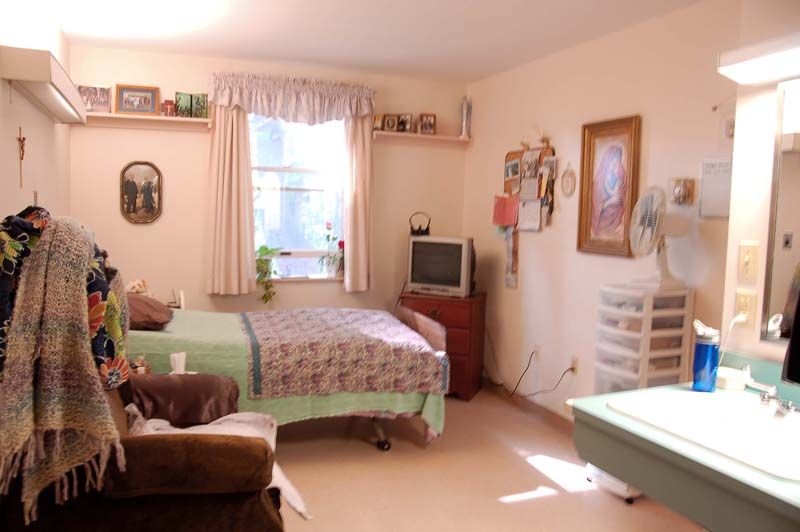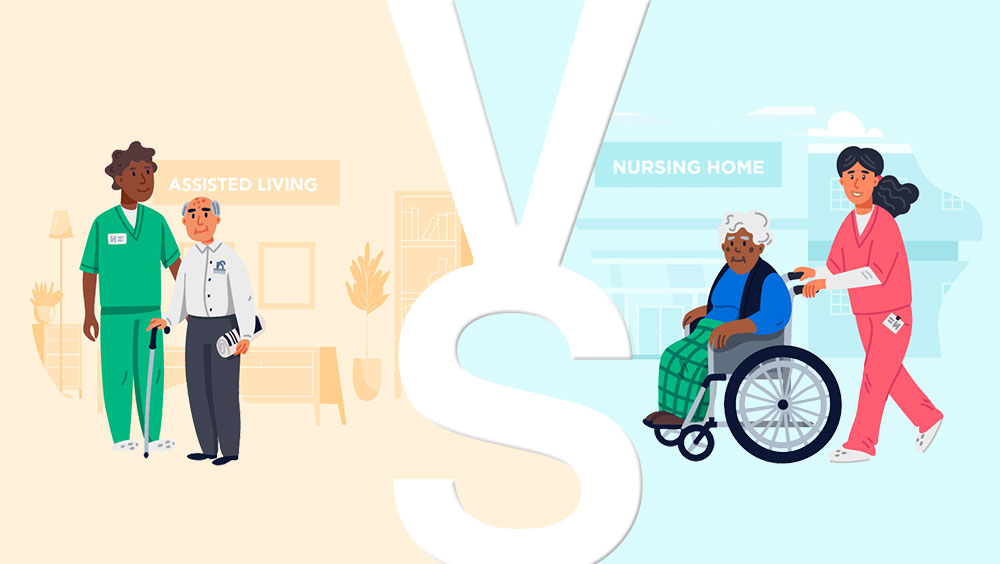When it comes to senior care, many people find themselves wondering about the differences between assisted living and nursing homes. Both options provide support for older adults, but they cater to different needs and lifestyles. In this article, we’ll break down the key differences between assisted living and nursing homes in simple terms, so you can make an informed decision for yourself or your loved one.
What Is Assisted Living?

Assisted living is a type of housing designed for seniors who need some help with daily activities but still want to maintain a level of independence. Residents in assisted living communities typically have their own apartments or rooms and receive assistance with tasks like bathing, dressing, medication management, and housekeeping. Assisted living communities often offer social activities, meals, and transportation services to help residents stay active and engaged.
What Is A Nursing Home?

A nursing home, on the other hand, provides a higher level of care for seniors who require more medical attention. Nursing homes are staffed with licensed healthcare professionals, including nurses and doctors, who are available 24/7 to monitor residents' health and provide medical care. Residents in nursing homes often have complex medical conditions or disabilities that require ongoing, intensive care that goes beyond what is offered in an assisted living facility.
Level Of Care Provided

The primary difference between assisted living and nursing homes lies in the level of care provided. Assisted living facilities focus on helping residents with daily activities and providing a supportive environment, while nursing homes offer more comprehensive medical care for those with serious health issues. If a senior only needs help with daily tasks but is otherwise healthy, assisted living may be the right choice. However, if they have significant medical needs, a nursing home might be more appropriate.
Living Arrangements

In assisted living communities, residents usually live in private or shared apartments that are designed to feel like home. These living spaces often include a bedroom, bathroom, and kitchenette, allowing residents to maintain some independence. In contrast, nursing homes typically offer more hospital-like settings, with residents living in private or semi-private rooms. The focus in nursing homes is more on providing medical care than creating a homelike environment.
Cost Considerations

Cost is an important factor when choosing between assisted living and nursing homes. Assisted living tends to be less expensive than nursing homes because it provides a lower level of medical care. However, the cost can vary widely depending on location, amenities, and the level of care needed. Nursing homes, which provide 24-hour medical care, are usually more expensive due to the higher level of services offered. It's important to consider your budget and what type of care is needed when making a decision.
Social And Recreational Activities

Assisted living communities often emphasize social and recreational activities as a key part of their offerings. These activities can include exercise classes, arts and crafts, game nights, and outings to local attractions. The goal is to keep residents engaged and active. Nursing homes also offer activities, but they may be more limited due to the residents' health conditions. The focus in nursing homes is more on medical care, so social activities may not be as varied or frequent as in assisted living.
Independence VS. Supervision

One of the main differences between assisted living and nursing homes is the level of independence residents have. Assisted living is designed to support seniors who can still do many things on their own but need some help with certain tasks. This allows residents to maintain a sense of independence while getting the assistance they need. In contrast, nursing homes provide constant supervision and medical care, making them a better choice for those who require more intensive support and monitoring.
Making The Right Choice

Choosing between assisted living and a nursing home depends on the individual needs of the senior. If they value their independence and only need help with daily activities, assisted living might be the best option. However, if they have serious medical needs that require constant care, a nursing home may be more suitable. It's important to assess the specific needs of the senior and consult with healthcare professionals to make the best decision.
In summary, the choice between assisted living and a nursing home comes down to the level of care needed, the living environment, and cost considerations. Assisted living is ideal for seniors who need help with daily activities but still want to maintain some independence, while nursing homes are better suited for those with significant medical needs requiring 24-hour care. Understanding these differences can help you make an informed decision that best meets the needs of your loved one.


